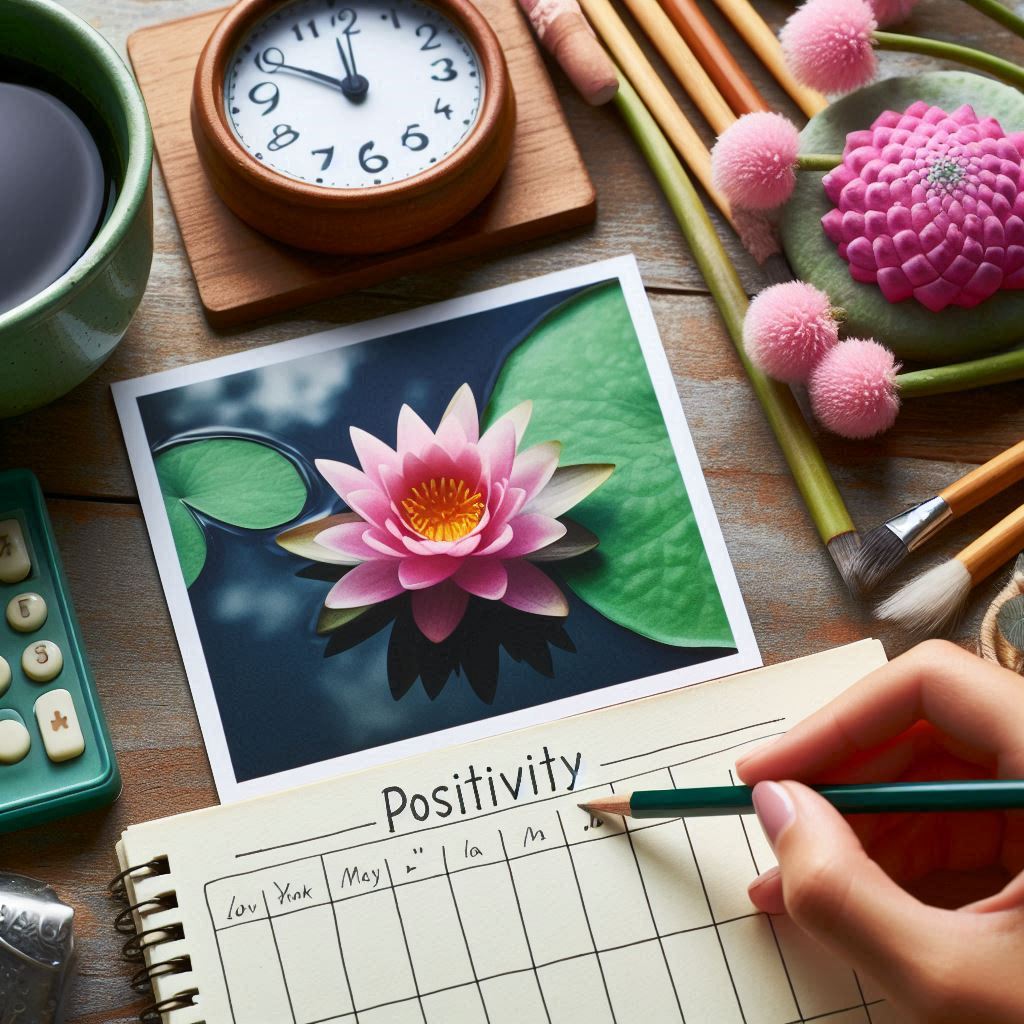Finding Inner Peace
Inner peace is a state of mental and emotional calm. It's often associated with feelings of contentment, balance, and harmony. While it can be elusive, many people find it through spiritual practices.
Techniques for Finding Inner Peace
Cultivating inner peace is both a science and an art. Research shows that regular practice of certain techniques can significantly reduce stress hormones, improve mood, and enhance overall wellbeing. Consider incorporating these evidence-backed practices into your daily routine:
- Meditation: The practice of training your attention to achieve mental clarity and emotional stability. Regular meditation has been shown to:
- Reduce activity in the brain's default mode network, which is associated with mind-wandering and rumination
- Increase gray matter in areas associated with self-awareness and compassion
- Lower cortisol levels, reducing physical stress responses
- Mindfulness: The practice of paying attention to the present moment without judgment. Mindfulness helps you:
- Observe thoughts and feelings without becoming overwhelmed by them
- Develop greater awareness of how you react to stressors
- Respond to challenges with intention rather than automatic reactions
- Yoga: An ancient practice combining physical postures, breathing exercises, and meditation. Yoga benefits include:
- Improved body awareness and physical relaxation
- Enhanced breath control, which directly influences the nervous system
- Integration of mind-body awareness for comprehensive wellbeing
- Journaling: The practice of writing to explore thoughts and feelings. Regular journaling:
- Provides perspective on emotional experiences
- Creates space between thoughts and reactions
- Helps identify patterns in thinking and behavior
- Nature connection: Spending time in natural environments. Research shows nature exposure:
- Reduces mental fatigue and restores attention
- Improves mood and reduces anxiety
- Fosters a sense of awe that puts personal concerns in perspective
"Inner peace is not the absence of challenges, but the ability to remain calm and centered in their midst. Through consistent practice, we strengthen our capacity to maintain equilibrium regardless of external circumstances."
Did You Know?
Research published in the Journal of Personality and Social Psychology found that people who report a strong sense of inner peace typically show greater resilience during difficult life events and recover more quickly from stress.
Discovering Your Purpose
Finding one's purpose is a lifelong journey. It involves self-reflection, exploration, and alignment of values with actions. A clear sense of purpose has been linked to greater resilience, better health outcomes, and increased life satisfaction.
Steps to Discovering Your Purpose
- Self-discovery: Understanding your passions, strengths, and values
- Reflect on activities that bring you joy and engagement
- Identify your natural talents and abilities
- Clarify your core values and what matters most to you
- Exploration: Trying new things and finding what resonates
- Step outside your comfort zone to experience new activities
- Learn about different fields, causes, and ways of contributing
- Notice what activities give you energy rather than depleting it
- Contribution: Seeking ways to make a positive impact
- Identify needs in your community or world that move you
- Consider how your unique skills could address these needs
- Start with small actions that align with your values
- Alignment: Ensuring your actions match your purpose
- Regularly assess if your daily activities reflect your values
- Make gradual adjustments to bring your life into greater alignment
- Recognize that purpose evolves and can take different forms over time
"Purpose is not a destination but a direction. It's less about finding the one perfect path and more about aligning your actions with your deepest values and using your unique gifts in service of something beyond yourself."
Purpose & Wellbeing
Studies show that people with a strong sense of purpose tend to live longer, experience fewer heart attacks and strokes, and are less likely to develop Alzheimer's disease. Purpose literally adds years to your life.
The Interconnection
Spirituality, inner peace, and purpose are deeply interconnected. By cultivating a deeper connection to something greater than oneself, individuals can find inner calm and a sense of direction in life. This integration creates a powerful foundation for wellbeing:
- Spiritual practices create the mental space needed to discover authentic purpose
- A clear sense of purpose contributes to inner peace by reducing existential anxiety
- Inner peace provides the stable foundation needed for spiritual growth
- Together, these elements create a positive cycle of personal development and wellbeing
At Positive 4 Mind, we believe this holistic approach to wellbeing offers the most sustainable path to living a meaningful, balanced life. Our resources are designed to support you in cultivating all three dimensions—spirituality, inner peace, and purpose—as part of an integrated journey toward your fullest potential.
Recommended Resources for Your Journey
Explore these carefully selected resources to deepen your experience of inner peace and purpose:
Online Courses and Programs
- Unlock Infinite Potential with Mahatria: A Revolutionary Path to Achieving Your Boldest Goals & Awakening Your Soul
- Elevate your well-being and health: Rest, heal, and discover through restorative practices
- Mindfulness Exercises: Over the last 15 years, we've empowered over 300,000 people to teach mindfulness and meditation with confidence and credibility
Recommended Books
- Positive 4 Mind: Browse our complete recommended Spirituality Books collection
- Becoming Supernatural: How Common People Are Doing the Uncommon by Dr. Joe Dispenza
- Somehow: Thoughts on Love by Anne Lamott
- Karma: A Yogi's Guide to Creating Your Own Destiny by Sadhguru
- The Joy of the In-Between: 100 Devotions for Trusting God in Your Waiting Season by Ashley Hetherington

